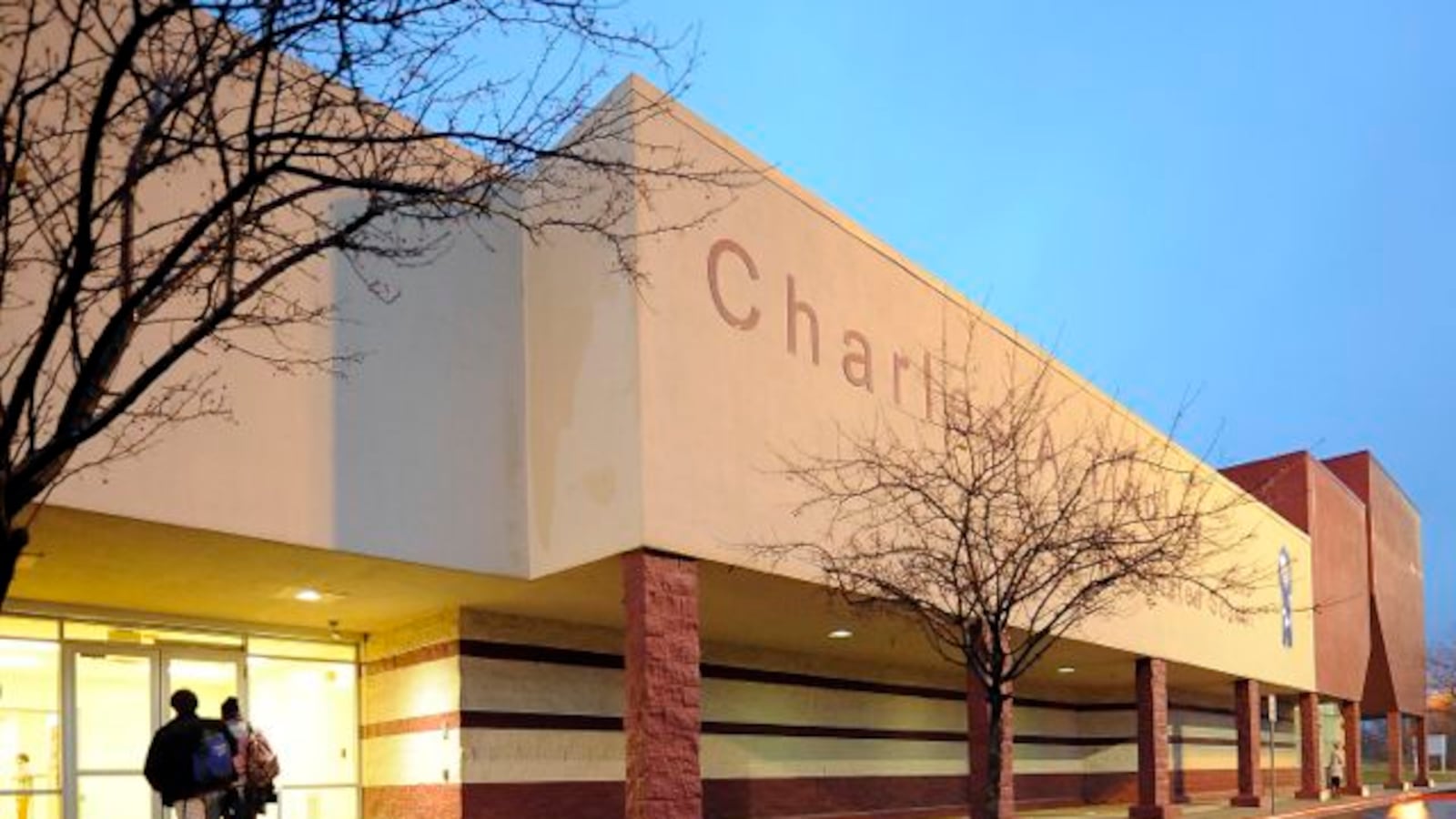When Cynecqua Goodridge picked Indianapolis Public School 103 for her son Johnnie to start Kindergarten last year, her choice was guided mostly by what she heard from her friends and relatives.
They had some good things to say about School 103, but it wasn’t until after Johnnie was in school that she learned the Eastside elementary school had earned F letter grades from the state for the past four years and its test scores ranked among the district’s worst.
“I had no idea that the school was failing,” said Goodridge, a parent member of education advocacy group Stand for Children. “It wasn’t until he was in Kindergarten that I found out there were magnet schools within IPS that I could send him to. If I would have known, I definitely would have sought out the best location for my son’s education.”
Goodridge and other Stand for Children parents are now pushing the district to improve the enrollment process and be clearer about test scores and other data so that other families don’t have the same experience.
Superintendent Lewis Ferebee said he’s receptive to the idea.
In fact, Ferebee said he has had “very preliminary” conversations with city officials about creating a common enrollment process to be shared by IPS and Mayor Greg Ballard’s portfolio of Indianapolis charter schools.
Sharing enrollment, he said, would allow district and charter schools to more efficiently plan their staffing by reducing unknowns about how many children might enroll. It would also be easier for parents who are trying to decide whether to send their children to IPS or to a charter school.
“It’s something that we’re open to,” Ferebee said. “Enrollment needs to be very user-friendly and I don’t think it’s very easy for parents to understand in terms of all the different offerings available to them. The better connected we are, the better the community will benefit from what we have to offer.”
A combined system has proved popular for colleges and universities, many of whom now share a single “common application” form. Students fill out just one application that is considered by many schools, which reduces paperwork and time.
For now, Stand for Children is pitching a more limited version of the idea: a “one-stop” shop to help parents to navigate school test scores and other data.
For example, Stand wants all IPS schools rated D or below to notify parents about the school’s grade. The group recently presented the idea to the IPS school board along with a few others they think will improve the district, including a better principal talent pipeline strategy, opening more IPS-charter compact schools and shifting funding from the central administration to the classroom.
Executive Director Justin Ohlemiller said his group is not calling for common enrollment between IPS and charters. At least not yet.
“That’s a couple steps further than what we’re recommending,” Ohlemiller said. “(We’re) calling for data to be housed in one location where (parents) can go and look and see how School A is performing compared to School B, to have all the information they need to make an informed choice.”
The idea of a single enrollment process for IPS and charter schools was proposed in 2013 as part of a policy brief by teacher leadership group Teach Plus as a way to reduce uncertainty for districts planning their staffing needs. It’s also gained traction nationally in cities where there are many school choice options.
School board member Caitlin Hannon, who runs the Indianapolis branch of Teach Plus, agreed parents need more help navigating their options than what is currently available. She has advocated for common enrollment in the past.
“We want to do everything we can to make sure that parents have access to choices, both within the district, and for me personally, outside of the district as well,” Hannon said last month. “We have ton of choice (in Indianapolis), but we don’t have a ton of clarity around navigating that system.”
The Mind Trust executive director David Harris is supportive of centralizing the enrollment between IPS and charters, and anticipated it could be instituted for the 2016-17 school year. The Mind Trust is a non-profit that advocates for innovation and educational change in Indianapolis.
“I’m hopeful that the momentum will continue to grow,” Harris said, who formerly ran the city’s charter school office under former Mayor Bart Peterson. “It’s an important issue. The more choice that is available for parents, the more we’re going to need to make sure we have equity of access.”
Update: This story has been updated to reflect the correct spelling of Stand for Children parent Cynecqua Goodridge’s last name.


